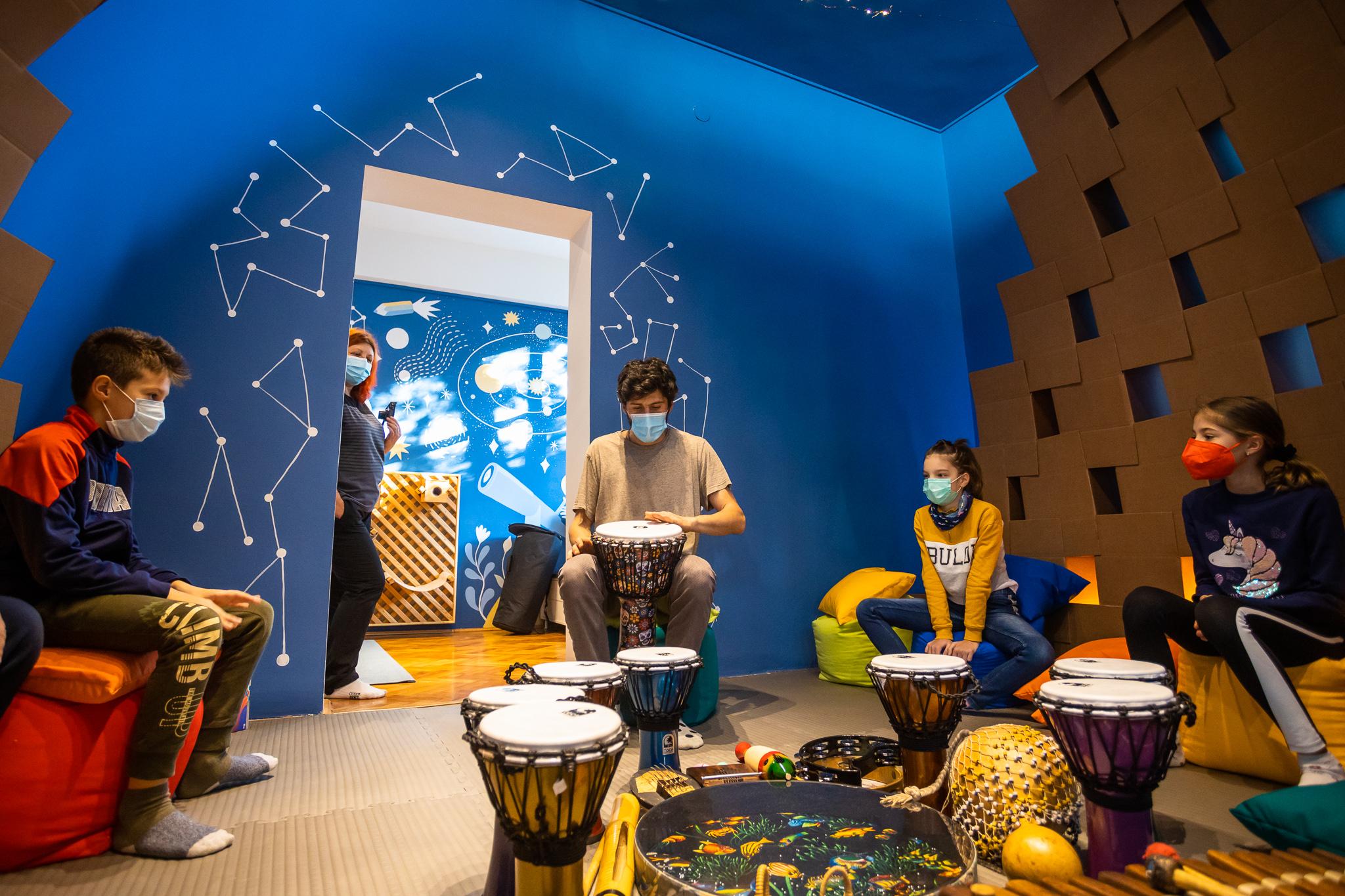
About the initiative
It is fundamental to create urban, public spaces dedicated to our cognitive and emotional well-being and spaces where art and culture can contribute to our personal development. With this in mind, Cluj Cultural Centre, together with more than 20 urban specialists, architects, researchers in various fields, artists, photographers and school representatives, emerged on a journey to co-design a space of relaxation, play and sensory exploration in the largest school in Cluj-Napoca, the Onisifor Ghibu High School.
Having almost 2000 students, including primary school, secondary school and high school, with different social backgrounds, the Onisifor Ghibu High School was the perfect place to develop a model that could, later on, be replicated in different schools from Cluj-Napoca.
The initiative took shape through a four-stage participatory process (Discover, Define, Develop and Deliver, based on a methodology by the UK Design Council), and it involved 60 students, 22 parents and a group of teachers from the Onisifor Ghibu High School alongside various experts who contributed to the creation and development of the design solutions.
With an area of 40 square meters, the space was designed to stimulate the emotional and cognitive development of students through art and creative exploration. The theme chosen for the arrangement was “the mysterious planet”, inviting children to express their curiosity and creativity in interaction with a multisensory panel, an astronomical mini-observatory, musical instruments and other playful tools.
The space can now be used for art and music classes and for experimental learning of various other disciplines. It can also be used to perform extracurricular activities and provides a great setting for recreation and relaxation.
About Cluj Cultural Centre
Cluj Cultural Centre is a non-governmental organization for culture and sustainable development, and its core belief is that culture makes cities more engaged and human. Legacy of the city’s bid for the European Capital of Culture 2021, the Centre implements an interdisciplinary programme to address several strategic challenges of the society. The Centre has 116 members: cultural organizations and institutions, universities, associations of the business sector and of the civil society, and the local and regional administration.
